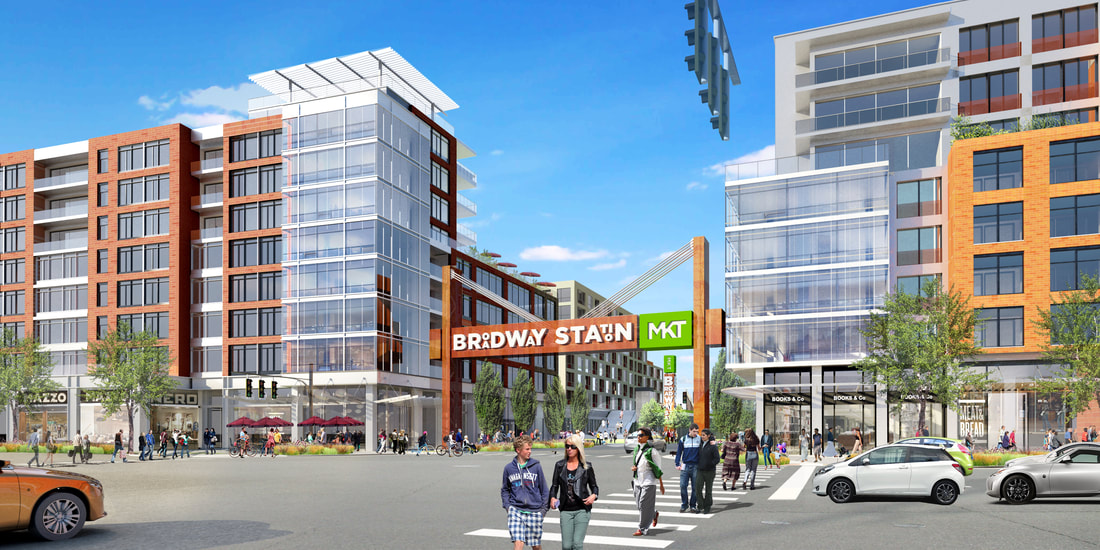Development Management & Public Financing Strategy for Broadway Station
Broadway Station Partners crafted a market-supportable master plan and a public financing strategy to develop one of Denver’s largest and most complex transit-oriented development sites.
Challenge
After acquiring the former Gates Rubber Company plant, Broadway Station Partners pursued development of one of Denver’s only remaining urban transit-oriented development sites. Located three miles from downtown and directly adjacent to one of the busiest light rail stations in the city, the site will provide much needed housing, office space, and walkable retail in one of the fastest growing cities in America.
Solution
Working closely with an engineering and planning team, HR&A advised Broadway Station Partners on strategies to unlock and create value by identifying activating uses, infrastructure improvements, and amenities. The team’s assessment of the local real estate market and financial feasibility of different development densities, typologies, and infrastructure programs informed the master plan, which targets infrastructure investments that improve connectivity and placemaking to unlock potential for development density and value.
To understand the extent of public financing needed for the substantial infrastructure improvements, HR&A analyzed the potential for value-capture tools to fund infrastructure development. To do this, the team assessed the impact of the development program, phasing, local market, and financing structures among other considerations for potential capital sources – including tax increment financing (TIF) and revenues from the site’s metropolitan district, or special taxing district. This analysis formed the foundation of the landowner’s tax increment financing request, financing plan, and negotiations with local public authorities, ensuring that revenues generated by the site are sufficient to finance required infrastructure and help produce market returns for the landowner in the long-term.
IMPACT
The Denver City Council unanimously approved the landowner’s $140 million public infrastructure financing request, including a $90 million tax increment financing package, the second largest ever approved in the city. Infrastructure development on the site broke ground in 2018.
